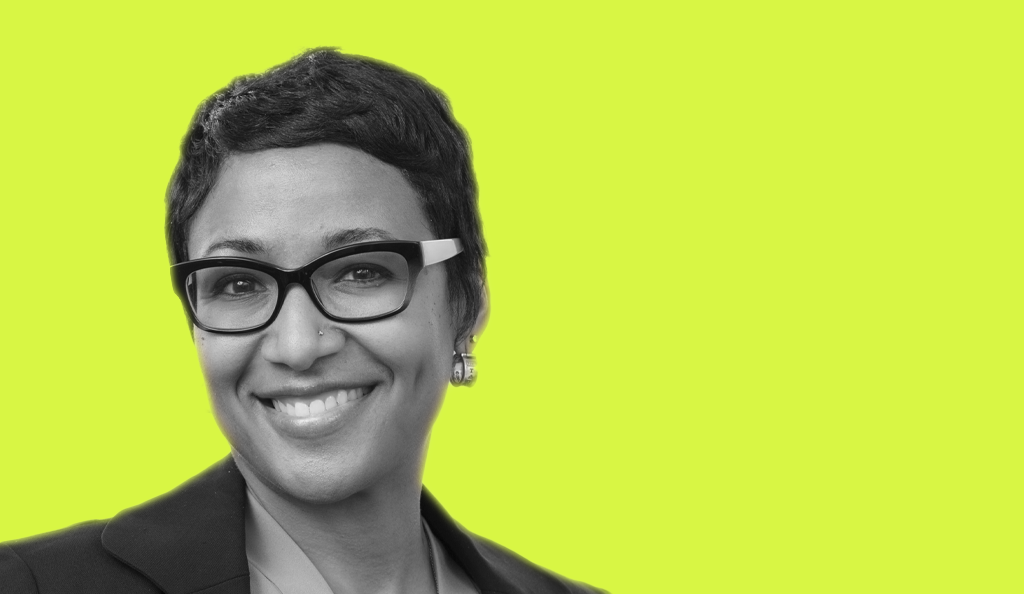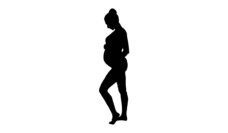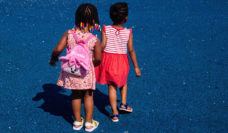Public Health Post: How does race determine experiences and opportunities over the life course?
Amani Allen: How does it not? We have to start in the womb. Race-related stress that the mother is experiencing can actually be transmitted through fetal cord flood into the biological sensitivity to context of the offspring.
Think about the ways in which exposures early in life, like the zip code one is born into, and what that means in terms of opportunities. For example, we know that your zip code determines the type of school you’re able to go to. We also know that financing for public school education comes from property taxes. If we link that with the history of racial segregation and the impact that has had on the scale of property taxes between neighborhoods, then we can automatically see how kids can be shunted into different opportunities starting in kindergarten. There are opportunity structures in the environments that we grow up in that will determine which path we go down to some extent.
You consider yourself to be more focused on “exposures” than “outcomes”. Which exposures seem to have the most influence in shaping racial health inequities?
Neighborhood level exposures like the physical environment, availability of green space, restaurants versus off-premise liquor establishments, doctor-patient race concordance, and access to quality healthcare. To me, a lot of these come back to racism and personally mediated experiences of racial discrimination.
As Principal Investigator for the African American Women’s Heart & Health Study, which specific stressors have you found significant in determining the health of Black women?
I don’t know if I would say one stressor has had more of an impact than others, but one of the themes that emerged was this idea of “anticipatory vigilance”. When we think about Black women, we have to think about the intersectionality of race and gender. Black women talked about how they had to put on their “armor” every day just to brace themselves for the possibility of being treated differently because of their race. When I talk to Black women about this, they say how can you tell me that being strong is bad for my health? I do this as a form of survival. It’s my armor. There’s this perspective that it’s protective, and there are certainly elements of being a strong Black woman that are protective. But there are also elements that we have seen that are detrimental to health.
Are there common mistakes in communications by the media about racial health disparities?
This is a very important historical moment. It has brought increased recognition for the pattern of systemic and racial inequities that have been persistent for decades. I’m glad we’re seeing the media give attention to this and give voice to this.
What we’re seeing now with Anti-Black racism is Black maternal mortality and morbidity, systemic racism within the healthcare system, the disproportionate shunting of healthcare resources to some communities compared to other communities, and the new form of lynching in the killing of unarmed Black Americans. These are not new phenomena. It’s part of what we’re seeing with Covid-19, but I would say it’s because people are paying more attention. I would love to see that it doesn’t take very visible, egregious incidents to move the media, to shine a light on what has been apparent for many, many years.
Also, there has been a lot of attention paid to documenting that disparities exist. But not necessarily interrogating why.
What research needs to be done in the next years in studies of race and socioeconomic inequities?
We start testing large-scale interventions around socioeconomic status and access to different kinds of resources to see if that makes a difference across life stages. I want someone to be bold enough to say You know what? We’re actually not going to fund our public schools using property taxes. We’re going to experiment and see if we actually gave every school the same resources regardless of where they lived, if children would thrive.
I hope we see the day where all epidemiology is social epidemiology.
Photo courtesy of Amani Allen














